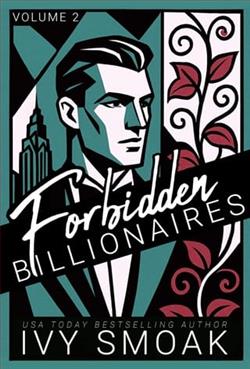Page 9 of The Girl Who Fell Through Time
His gaze shifts back to the violets, a faint smile tugging at his lips. “They don’t beg for admiration the way roses do, do they?”
“Exactly,” she murmurs, surprised by his insight. For a moment, they stand there in companionable silence, surrounded by wildflowers and tangled hedges.
In that instant, an idea takes root in Selene’s mind, bold and audacious as the violets sprouting from the shadowed earth.
Dorian Nightbloom. Dorian Nightbloom isperfect.
He looks almost out of place among the pomp of the other guests, his simple, dark attire a stark contrast to their embroidered coats and feathered hats. He is tall and slim, with an easy posture and an air of unassuming calm. Perhaps he isn’t the most handsome of men—there is a bookish, untidy quality to him. His clothes are well-worn, he has a pair of small spectacles perched on his nose, and his auburn locks are unfashionably long for a man. He wears his hair tied back at the nape of his neck, shoulder length, she thinks, the sort of length men’s hair quickly reaches if they don’t cut it often. Despite this, he is clean-shaven and smells faintly of horse, suggesting he has foregone a carriage and ridden here himself.
None of that matters. He is unmarried and unattached, and the same age as she is. A quiet, scholarly man, not known to be cruel. As a child, he attended the same aristocratic academy she did, though he left when he was fourteen. Rekindling that connection wouldn’t be unthinkable.
Best of all, it is entirely plausible that Selene would have kept their supposed romance a secret. The Nightblooms are deeply unpopular at court. Dorian’s father, Lord Gideon, was a proud socialist—a scandalous affiliation that forced Dorian to leave the academy. Though Lord Gideon has been dead for two years and Dorian does not outwardly share his father’s views, the stain of his name remains. No one would marry into that family for anything less than love.
Selene considers this carefully. Lord Nightbloom could do with a wife. He has no heir, no immediate family, and little fortune to his name. She, by contrast, brings an estate, excellent social standing, and an agreeable reputation. Shemight not be renowned for her intellect or domestic skills, but she is attractive and well-liked at court.
By all accounts, she is quite the catch.
And yet, Selene suddenly finds herself incredibly nervous.
Lord Embry would say yes without hesitation. Lord Greyton would barely need to deliberate. But standing before Dorian, she is painfully aware of how little she truly knows him. She has no idea which angle to play to secure his agreement. Seduction? Bribery? Flattery?
Something tells her none of these will work on Dorian. Honesty might, but she can hardly tell him why she desperately needs him to agree.
Can she?
“Lord Nightbloom,” she begins carefully, “I need your help.”
Dorian’s eyes widen—a subtle shift, but enough to notice—before his expression settles back into that placid, almost bored mask. “With what, My Lady?”
“Duke Drakefell is going to ask for my hand in marriage,” she explains. “And I really, really don’t want to marry him.”
Again, his eyes widen. Selene waits for the inevitable questions—why she wouldn’t want to marry such a gentleman, or even an attempt to sing the Duke’s praises. Many others would.
But Dorian doesn’t. “And how may I be of assistance in this matter?” he asks instead. “Do you wish me to cause a distraction? Provide you with more time to find another suitor—”
“I want you to marry me.”
Dorian stiffens. This time, his eyes don’t narrow again—they remain wide, fixed on her. For a brief moment, Selene feels as though she has become Lady Serpent from the old tales, the woman whose glance could immobilise men entirely.
“I’m sorry,” Dorian says at last, his voice careful. “Did you say… you want me to marry you?”
“Yes,” she confirms, trying to sound more confident than she feels. “Please. If you wouldn’t mind.”
She hesitates, aware she isn’t renowned for her wit or wisdom—qualities she imagines he might value. “I have a fine social standing,” she adds quickly, “and I’m heir to the—”
“Why me?” he interrupts.
Her answer wouldn’t be flattering.Because the other options are dreadful. Because your poor social standing will make the arrangement plausible.
She swallows hard. “Because I’m fairly sure you won’t hurt me.”
Dorian turns sharply, walking to the edge of the garden. He stares out at the foliage for a long time. Selene’s mind races. She should have said something more flattering, something cleverer, sold herself better. She doesn’t even know if Dorian likes women.
“All right,” he says.
Selene blinks. “Come again?”
“I said yes,” he repeats. “I’ll marry you.”















